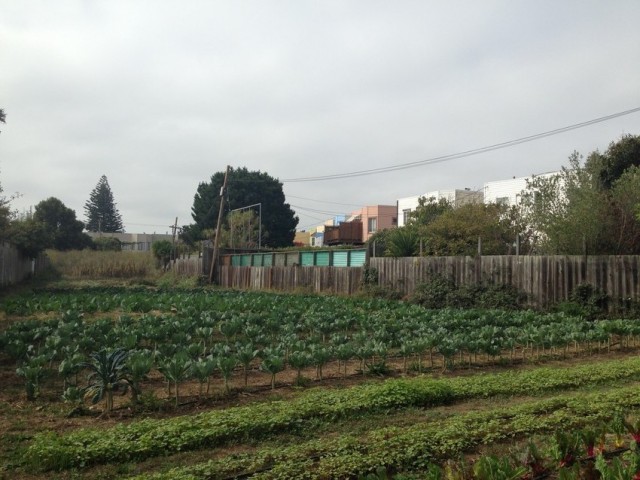The Urban Agriculture Incentive Zones Act (AB 551) makes the property owner hand over the land for at least five years, giving urban farmers more security. The law requires inspectors to check in on the gardens, making sure landlords aren’t taking advantage of the program.
Aaron Roland owns a vacant lot in San Francisco. It's already a garden where people grow free food for the community, but Roland says the $6,000 annual property tax is a big burden.
“And then, when I heard about this idea for this bill, to treat the property and value it as an agricultural value, that seemed great to me,” he said.
Roland estimates his property tax will drop by at least 80 percent.
But State Assemblymember Phil Ting of San Francisco — who sponsored the bill — said that tax drop won't mean a drop in state revenue. Standing in Little City Gardens, he cited a New York University study that found community gardens raise the value of the surrounding properties.
“Also, we don't have to spend as much money on public safety or public works to come pick up trash or police this area,” he said. “So because of that it's actually going to be a revenue gain.”
The law just provides the framework for individual cities and counties to offer the tax breaks to their citizens. Ting says the next step is for community members to push their local governments to opt-in.
Community members like Barbara Finnin of City Slicker Farms in West Oakland plans to do just that. She says she’s ready to talk to her councilmembers to make sure that Oakland is one of the cities that takes advantage of the law.
“We have a lot of enthusiasm and a lot of community folks who want to see this happen,” she said.
The law takes effect in January.
See our earlier story on urban farming: "New California Law Breaks Ground for Urban Agriculture,"
